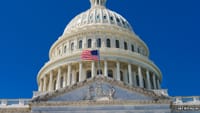Stop overpaying - start transferring money with Ogvio. Sign up, invite friends & grab Rewards now! 🎁
Disney Allegedly Abandons Its Plans to Explore the Metaverse
It appears that Disney is done exploring the Metaverse use cases.
Disney, an American multinational mass media and entertainment conglomerate, is reportedly abandoning its Metaverse plans.
As per a Wall Street Journal (WSJ) article published on March 28th, the move is part of a broader restructuring effort aimed at cutting the corporation's operating costs by $5.5 billion and eliminating 7,000 jobs within a two-month timeframe.

Did you know?
Subscribe - We publish new crypto explainer videos every week!
What is Terra Luna? History & Crash Explained (ANIMATED)


The news was allegedly revealed by a person familiar with the matter.
Established in February 2022, the Metaverse division was created to discover novel ways for Disney audiences to engage with its content. However, following the division's dissolution, approximately 50 employees will be left without renewed contracts, except for Michael White, the head of the broader consumer products unit.
Prior to this development of the Metaverse division, in December 2021, Disney had filed a patent for a "virtual-world simulator." With the patent, Disney intended to create augmented reality (AR) experiences at Disney theme parks that would not require headsets.
In the past, Disney had considered incorporating Metaverse technology into the sports betting industry. However, no substantial progress was made in this direction.
Both past and present Disney CEOs, Robert Iger and Bob Chapek, were previously enthusiastic about the Metaverse. Chapek had even described the Metaverse as "the next great storytelling frontier."
Disney's alleged decision to dissolve its Metaverse division signifies a shift in the company's priorities. While the Metaverse once appeared to be a promising avenue for the entertainment giant, it seems that the focus has now shifted toward other aspects of the business.
At the beginning of 2022, Disney teased a Metaverse theme park. In July, Disney partnered with Polygon to work on developing non-fungible tokens (NFTs), artificial intelligence (AI), and augmented reality (AR) experiences.






















